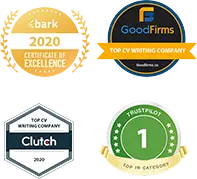Today’s competitive employment market requires strong CVs. Make your count as potential employers generally view it first. These suggestions can help you write a CV that obtains interviews. However, if you find the process overwhelming, consider employing professional CV writing tools to make your application stand out.
1. Tailor Your CV to the Job
Adapting your to the job you want can make it stand out. The most relevant skills and expertise should be emphasized. You must study the job description and how its language and requirements apply to your CV. Clear job comprehension is valued by employers.
2. Use Professional Design and Structure
In fact, the arrangement and design of your CV will affect its readability and attractiveness. Make your style tidy, businesslike, and simple. Always use bullet points, concise headings, and white space to divide sections. Clearly, avoid too innovative designs unless you work in the creative industry.
3. A Powerful Personal Statement
Actually, your personal statement, or professional summary, is the first thing an employer will see. It should be noted that one paragraph should outline your professional experience, core talents, and career aspirations. In a short and to-the-point manner, emphasize why you’re the greatest candidate.
4. Highlight Accomplishments As Well As Responsibilities
Although you should list your tasks, stressing your successes might boost your CV. Always quantify your accomplishments when possible. In fact you must say “managed a team of 10, increasing productivity by 20%,” not “managed a team.” Actually, this technique quantifies your influence.
5. Use Keywords And Action Verbs
Most companies utilize applicant tracking systems (ATS) to screen resumes before they see them. In fact, to pass this initial screening, use job description keywords throughout your CV. Always write about your experiences using strong action verbs like “developed,” “implemented,” and “achieved.” In fact, it boosts ATS and CV dynamics.
6. Shorten It
Actually, it’s tempting to list everything about your career, but firms desire brief CVs. Always use one to two pages for the most critical information. Moreover, discuss your most recent and relevant positions in depth, then assemble prior roles if you had a long career.
7. Add Talents Section.
A section highlighting your strengths is a great way to showcase them. Always include soft skills (interpersonal) and hard skills (tecFirst At first, be honest about your skills; mentioning something you’re not good at might backfire in the interview.
8. Complete Proofreading
Grammar and spelling errors are the only things that may destroy a good CV Whenct, when editing your CV, consider having a friend or professional, fresh eyes often spot mistakes you missed. Perfect CVs demonstrate the attention to detail required in most jobs.
9. Include Proper Education and Training
List your degrees, certifications, and relevant training. For fresh graduates with limited work experience, include this section at the front of Peoplefact, people with longer work histories find this section after their professional experience.
10. Get CVs Made
If you’re not sure what to include or how to present your facts, writing a good CV might be tricky. Professional CV services help here. These firms have specialists who know what companies want and can help you write a CV that highlights your skills and certifications.
A well-written CV will land you job interviews and the job you want. Your CV may be distinctive by adapting it to the role, using a professional style, emphasizing your accomplishments, and using keywords and action verbs. Remember to revise and keep your CV brief and focused. Moreover, if you need more help, consider CV making services. These tips might help you write a standout CV.
Customize Your CV for Different Industries
Different industries have distinct CV demands. A CV for an advertising creative may differ from one for a financial analyst. Check your field’s standards and update your CV.
Resumes Should Be ATS-Friendly.
Use a simple structure without fancy photos or typefaces to ensure your CV passes application tracking systems. Always use common section titles like “Experience,” “Education,” and “Skills,” and avoid tables and columns that confuse the ATS.
Underline Transferable Skills
If you’re changing careers, highlight transferable skills. Highlight times you used these skills in a new environment.
Keep It Updated.
Keep your CV current with new skills, accomplishments, and experience. This assures your latest skills and indicates you’re ready for new opportunities.
Be Honest
Although you should present yourself well, honesty is crucial. You might face serious consequences if you lie about your experience or inflate your talents during the interview or after starting the work.
Utilize LinkedIn
Make sure your LinkedIn profile matches your CV. Many organizations may see your LinkedIn profile during the hiring process; keep it professional. LinkedIn job search and networking.
Consider Visuals
If your industry emphasizes visual creativity, consider adding modest design features to your CV. Infographics, charts, and symbols may demonstrate your skills. However, balance professionalism and creativity to keep your CV legible and strong.
Request Comments
Ask mentors, career coaches, or coworkers for feedback immediately. Furthermore, they can provide insightful analysis and suggest unanticipated improvements. Positive feedback helps you improve your resume’s attractiveness.









